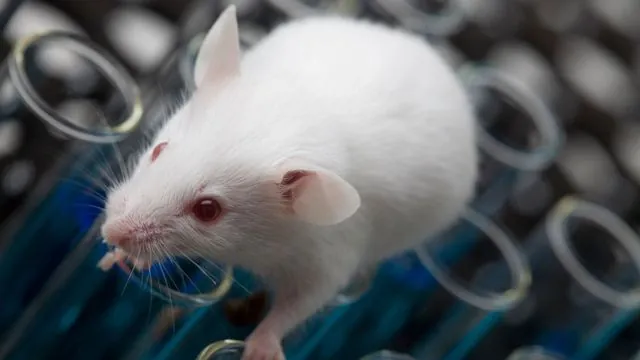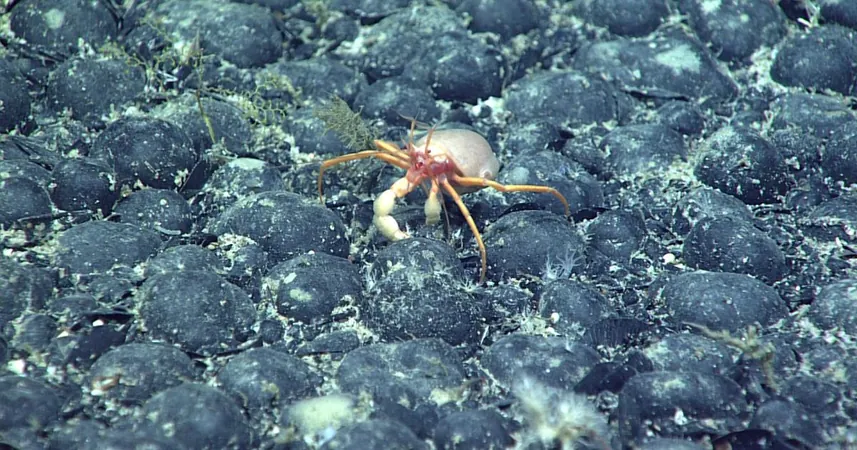
Groundbreaking Research Reveals Immune System's Tight Hold on Mouse Gut Health!
2024-11-22
Author: Wei
Groundbreaking Research Reveals Immune System's Tight Hold on Mouse Gut Health!
In a stunning discovery that promises to reshape our understanding of gut health, scientists have delved deep into the intricate workings of the mouse intestine, revealing how different regions are meticulously regulated by the immune system. The delicate balance of the intestine is crucial for absorbing nutrients and maintaining a harmonious relationship with the gut microbiome. This balance, however, can be severely disrupted in individuals suffering from celiac disease, ulcerative colitis, and Crohn’s disease.
Pioneering Research Teams
Leading the charge in this pioneering research are teams from the Broad Institute of MIT and Harvard and Massachusetts General Hospital, who have embarked on an unprecedented mission to map gene expression, cell types, and their locations throughout the mouse gut. Their findings, published in the esteemed journal *Nature*, underscore the remarkable adaptability of the intestine and reveal a previously unknown segment of the colon controlled by immune signals.
New Perspectives in Intestinal Research
“Despite the extensive research on the intestine over the decades, our study unveils a new perspective that challenges many existing studies,” noted Toufic Mayassi, a co-author of the study. This fresh insight pushes the boundaries of scientific knowledge and paves the way for future explorations into the complexities of gut health and disease.
Resilience of the Intestine
Researchers discovered that while the spatial composition of the intestine remains stable amid various changes—including variations in microbiota and even the time of day—its resilience shines through. For instance, when inflammation was induced, researchers observed a temporary shift in gene expression and cell distribution, but astonishingly, the intestine demonstrated a remarkable ability to recover within three months.
Blueprint of the Gut
"We've created a detailed blueprint of the gut, which is a significant landmark," stated Ramnik Xavier, director of Broad’s Immunology Program. This comprehensive mapping sets the groundwork for future research to understand the implications of genetic variations and immune responses related to diet, the microbiome, and gastrointestinal diseases.
Implications for Gut Microbiome Collaborations
Moreover, the research revealed that intricate adaptations occur within specific niches of the gut, influenced by the gut microbiota. When comparing mice with normal microbiomes to germ-free mice, they identified distinct gene expressions, particularly in goblet cells, which produce mucus essential for gut protection. These findings heighten the intrigue around how the immune system and gut microbiome collaborate to uphold intestinal health.
Future Research Directions
Looking to the future, the researchers are eager to apply their methodologies to explore additional factors that impact gut health. What's next? They aim to investigate how variables like sex, diet, food allergies, and genetic predispositions for inflammatory bowel disease shape the spatial dynamics of the intestine. Furthermore, they hope to correlate their insights from mice with the spatial regulations observed in the human gut.
Conclusion
This groundbreaking study marks a seismic shift in how we understand gut health, suggesting a new era of research could unveil critical information about maintaining intestinal balance, especially for those afflicted with digestive disorders. Stay tuned as scientists further unravel the secrets hidden in the complex world of the gut!




 Brasil (PT)
Brasil (PT)
 Canada (EN)
Canada (EN)
 Chile (ES)
Chile (ES)
 España (ES)
España (ES)
 France (FR)
France (FR)
 Hong Kong (EN)
Hong Kong (EN)
 Italia (IT)
Italia (IT)
 日本 (JA)
日本 (JA)
 Magyarország (HU)
Magyarország (HU)
 Norge (NO)
Norge (NO)
 Polska (PL)
Polska (PL)
 Schweiz (DE)
Schweiz (DE)
 Singapore (EN)
Singapore (EN)
 Sverige (SV)
Sverige (SV)
 Suomi (FI)
Suomi (FI)
 Türkiye (TR)
Türkiye (TR)